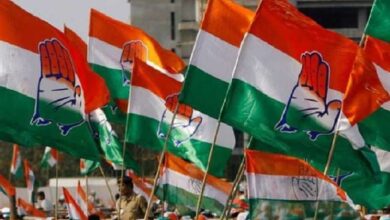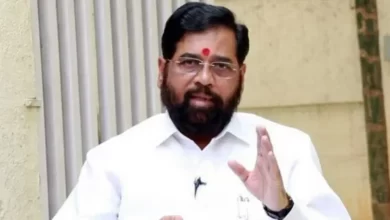Development and Humanitarian Approach

Whatever plans have been made for the development of the country so far, they do not provide a permanent solution.
Gunjan Mishra
Whatever plans have been made for the development of the country so far, they do not provide a permanent solution. Like the Green Revolution has swallowed the fertile soil, health, livestock etc. of the country, the rivers have been dammed and the economy has swallowed up humanity and the environment.
The policy makers of the country should ignore the words like the need of the hour, the remedy for the present crisis and now move towards finding a permanent solution to the problems of the country. Corruption, illiteracy, education system, health care system, poverty, climate change, depleting ground water level, air pollution, solid waste, women empowerment, unemployment, agricultural crisis, flood, drought, pending justice, GDP etc. Issues in front of the country today. Those who today need to find solutions on priority basis.
India today needs a equitable economy that can reduce inequality in the country. According to the Global Inequality Report, India stands as a ‘poor and unequal country, where the top ten percent of the people account for seventy-seven percent of the total national income’. In this too, the top one percent people occupy twenty-two percent of the total national income. The shocking thing is that the era of Kovid epidemic has proved to be a golden age for billionaires. This proves that unless the skills to survive and the humane curriculum to survive are not included in the education, it will not be possible to establish an ideal and circular economy.
The question is, which of the problems like education, health, economy, agriculture, employment, climate change should be raised by keeping it in the center or priority, in which all the problems can be solved. Because warnings about health are coming again. To get rid of the problem of climate change, efforts are being made to reduce the use of fossil fuels all over the world. Some talk about farming on the principle of Darwin, then the policy makers of the country talk about building dams for irrigation to increase the income of the farmer. To stop migration, the need of industries is told, that is, there is talk of solving problems in different ways. But the solution doesn’t seem to be coming out of nowhere.
In a country like India, non-violent agriculture is the only medium in which there is a solution to all the problems. Only non-violent agriculture can solve problems like water, land, biodiversity, climate change, soil, employment, malnutrition. Therefore, the government should make plans keeping agriculture at the center, only then the country can propound the principle of ‘Sarva Jan Hitay, Sarva Jan Sukhay’.
Whatever plans have been made for the development of the country so far, they do not provide a permanent solution. Like the Green Revolution has swallowed the fertile soil, health, livestock etc. of the country, the rivers have been dammed and the economy has swallowed up humanity and the environment. For example population has become a liability for India when it comes to food security. With only 2.4 percent of the world’s total land area, India has fourteen percent of the world’s population.
It accounts for about four percent of water resources. This is the reason why India is facing water crisis. In 1951 the per capita availability of water was five thousand one hundred and seventy seven cubic meters, which decreased to one thousand five hundred and forty five cubic meters in 2011. That is, there has been a decline of about seventy percent in sixty years. A report by the Center for Science and Environment (CSE) states that there are four major biodiversity centers in India and ninety percent of these areas have been lost.
What’s more, India is the most polluted country in the world according to the University of Chicago’s Air Quality Life Index (AQLI) report, with pollution levels regularly orders of magnitude higher than levels found elsewhere in the world. If we talk about climate change, the average temperature was recorded 0.91 percent above normal. This was the fourth time in the last one hundred and forty two years that the increased temperature was recorded in November 2021.
According to a survey, it was also found that eighty-seven major food crops in the world are fully or partially driven by pollination. Bees contribute greatly to this process of pollination, providing food for thousands of different species of birds and animals. Various species of plants are found on the earth and bees are responsible for this. Therefore, to balance the extinct species and the cycles of nature, India should take rapid steps for environmental protection. For this efforts are needed at the global level.
One law should be implemented in the whole world and playing with the environment should be declared an international crime. For this, institutions like the World Bank should also make such schemes for developing countries like India, in which instead of money, barter should be introduced, so that cottage industries would be encouraged. In this way the gap of inequality can be bridged to some extent.
The world’s great scientist Albert Einstein also said about capitalism that development in the world has been reduced to a small elite class of private capital and a handful of countries. Even a democratically organized political society cannot effectively control this power of private capital. Overall, natural resources should be mined or used only after assessing the environmental potential of the country. For this, a comprehensive law should be made for the five elements in the country because there are problems in their implementation due to different rules and regulations for biodiversity, water, air etc. Therefore, those who intentionally harm the environment easily escape.
The government should emphasize on education giving practical information about all aspects of life, science, generosity, meaning, society to the students of undergraduate and postgraduate level. The youth can be engaged in farming activities to get practical training for three to six months with the farmers to connect the agriculture. This will also give a boost to agriculture industries in the agriculture sector and at the village level.
Big projects are not needed for development, but even small projects can yield pleasant results. If future development plans are made keeping Gandhi’s philosophy and principles at the center, then the country will be able to move towards an inclusive development in a equitable manner. Although the central government has implemented many schemes for village self-government, but due to the concept of GDP, the rejection of some aspects cannot be considered good for the development of the country.
For example, the Ken Betwa river tie-up project under the river link project in which the real value of water, forest, land was negated. Whereas it has been proved that through ponds irrigation and drinking water can be provided to the people without any loss. Therefore, the government should give more importance to human approach in development projects, in which the participation of common man is ensured, only then we will be able to make Gandhi’s India happy.
,






